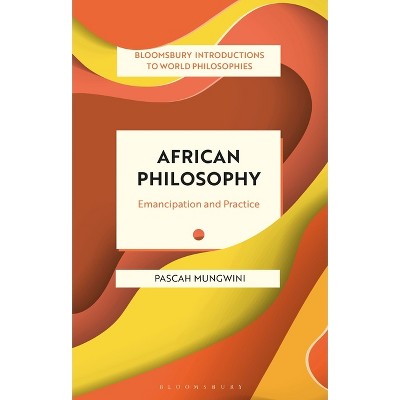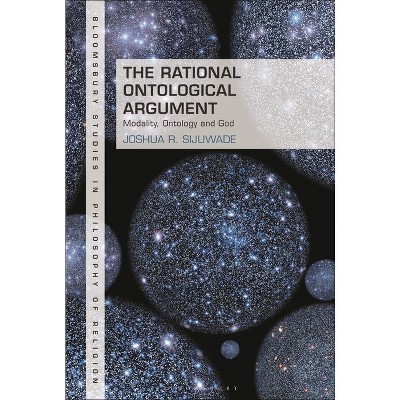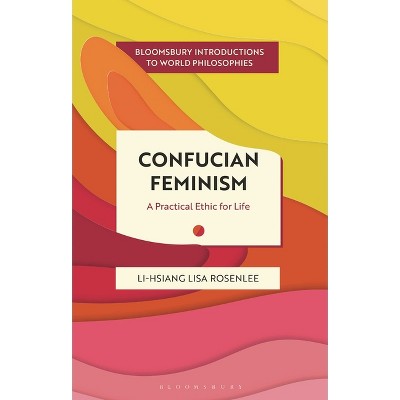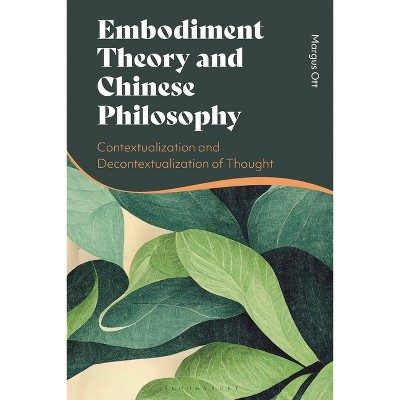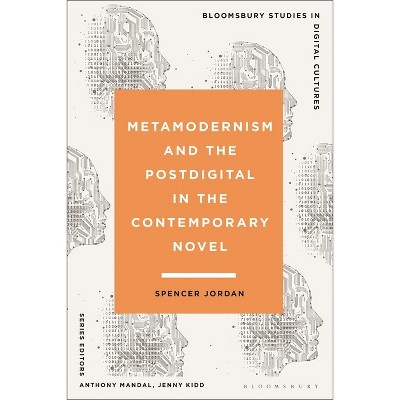The Philosophy of No-Mind - (Bloomsbury Introductions to World Philosophies) by Nishihira Tadashi (Hardcover)

About this item
Highlights
- Nishihira Tadashi, one of Japan's leading philosophers, introduces the deeply experiential philosophy of no-mind (mushin).
- About the Author: Nishihira Tadashi is a Japanese philosopher who held the Chair of Education in Kyoto University, Japan.
- 304 Pages
- Philosophy, Eastern
- Series Name: Bloomsbury Introductions to World Philosophies
Description
About the Book
"Translated into English for the first time, leading Japanese philosopher, Nishihira Tadashi, explores the deeply experiential philosophy of losing yourself in the reality of the present. He takes us on a tour through the history of Zen, the gatekeeper of the philosophy of no-mind D.T. Suzuki, the Noh theory of Zeami and Takuan's treatise on swordsmanship. Nishihira pulls together the threads of this genealogy of no-mind, showing the richness of the concept and its essential connection to the paradoxical task of becoming fully human"--Book Synopsis
Nishihira Tadashi, one of Japan's leading philosophers, introduces the deeply experiential philosophy of no-mind (mushin). In everyday Japanese, mushin is when one loses oneself in the reality of the present and becomes one with it, resulting in one's best performance. However, behind this everyday use is a concept that touches the core of Japanese spirituality.This book explores no-mind in its dynamic complexity. It is both the letting go of the calculations of mind and at the same time the arising of a vibrant consciousness in unity with reality. This gives rise to various tensions: Is it about negating or affirming self? Is stillness or activity? How does it relate with social ethics, or religious transcendence? And what is stopping no-mind from descending into mere mindlessness?
These tensional facets are explored through philosophy and history of thought in Japan, from pre-Buddhist Japanese thought, to Zen Buddhism in D.T. Suzuki and Toshihiko Izutsu, to swordsmanship and Noh theater. These historical approaches are brought to the here-and-now, dialoguing with psychology, ethics, and the experiences of everyday life, and ending with two preliminary practical explorations-What does it mean to care for another and to educate from the point of view of no-mind?
Review Quotes
Nishihira's accessible and delightful book highlights traditional and innovative aspects of No-Mind: consciously becoming-one with rain, music, audience, or opponent; throwing one's mind into one's body, stopping nowhere, to be everywhere; disengaging with the self in interpersonal exchange, allowing care to emerge. Sevilla-Liu's insightful essay encourages educators to juxtapose No-Mind and the cultivation of being-mode to the prevailing doing-mode.
Chiara Robbiano, Associate Professor of Philosophy, University College Utrecht, Utrecht University, The Netherlands
About the Author
Nishihira Tadashi is a Japanese philosopher who held the Chair of Education in Kyoto University, Japan. He is currently professor and vice-director at the Institute of Grief Care at Sophia University, and Professor Emeritus at Kyoto University. He has authored books (in Japanese) on The Philosophy and Psychology of E.H. Erikson (1993), The Spiritual Lifecycle in the Works of Jung, Wilber, and Steiner (1997), Philosophical Investigations into Zeami's Teaching of Exercise and Expertise (2009), Mysteries of Death and Birth in Childhood (2015), Lifecycle Philosophy (2019), The Wisdom of Keiko: Practice and Exercise (2019), The Wisdom of Shuyo: Self-Cultivation in Japan (2020), and The Wisdom of Yojo: Health-Care and Self-Cultivation (2021), among others. He also translated several of E.H. Erikson's works into Japanese.
Catherine Sevilla-Liu is a researcher specializing in narrative and embodied practices at Kyushu University, Japan. She is also interested in how mindful- and compassion-based therapies may be combined with these practices. Aside from being a researcher, she is also a certified yoga instructor and sumi-e artist. Anton Sevilla-Liu is Associate Professor of Clinical Pedagogy at Kyushu University. His research examines how to transform education using the insights of Japanese Philosophy combined with contextual psychology. He is the author of Watsuji Tetsurô's Global Ethics of Emptiness: A Contemporary Look at a Modern Japanese Philosopher (2017) and the translator of Sueki Fumihiko's Religion and Ethics at Odds: A Buddhist Counter-Position (2016). He is also one of the editors of the Journal of Japanese Philosophy.Shipping details
Return details
Trending Poetry






